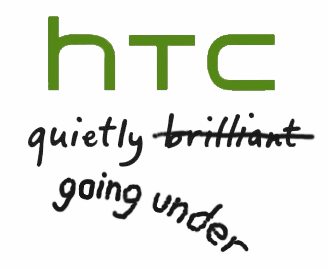 HTC was one of the first smartphone makers to cash in on the Android craze a couple of years ago, but the good times are long gone and if its fortunes don’t turn around soon, it might be up for sale, or worse.
HTC was one of the first smartphone makers to cash in on the Android craze a couple of years ago, but the good times are long gone and if its fortunes don’t turn around soon, it might be up for sale, or worse.
Back in 2010 and the first half of 2011, HTC was the darling of tech hacks and investors alike. It was posting strong sales, with triple digit revenue growth for four consecutive quarters. However, it has been downhill ever since.
On Wednesday HTC announced that its sales in February dropped a whopping 44 per cent year-on-year and 27 per cent compared to January. At the moment, HTC’s market cap is roughly one fifth of what it was in mid-2011.
So what on earth went wrong, and what led to HTC’s annus horribilis last year?
It wasn’t the products. Last year HTC decided to focus on fewer phones, which seemed like a logical step for a small outfit, as it could allocate its resources more efficiently and turn itself into an upmarket brand. The resulting One series phones got stellar reviews, but the positive vibe did not result in strong sales. HTC’s flagship One X featured a better screen than its arch nemesis, the Samsung Galaxy S3. It also looked a bit nicer and its build quality was vastly superior. In terms of hardware and software, it was on a par with Samsung’s S3 juggernaut. The same is true of other HTC phones.
For years HTC was viewed as a geeky smartphone brand with excellent but somewhat dull products. It tried to shake off this perception by introducing a bit more flare to its smartphone designs and then there was the ill-conceived Beats Audio deal. Clearly, it didn’t help. Worse, Samsung’s approach of flooding the market with countless Galaxy models worked like a charm. Instead of diluting the Galaxy brand with cheap, plasticky phones, Samsung managed to get more brand recognition than Google’s Android OS. Galaxy has become synonymous with Android, and then some.
HTC’s new flagship, dubbed One sans suffix, is already getting great reviews. It features a 4.7-inch 1080p display, Qualcomm’s Snapdragon 600 processor, which is the fastest currently available mobile chipset, along with an innovative Ultrapixel camera and a new dual-membrane microphone. It ticks all the right boxes and should be able to take on anything Samsung, LG or Sony could throw at it.
Sadly though, that is not enough. HTC simply can’t sell its gear or get its message across. It lacks the resources of consumer electronics giants, so it can’t market its products as effectively and it can’t get sweetheart carrier deals like big players. What’s more, smartphones have already gone mainstream and HTC simply lacks the brand recognition of more consumerish brands. Geeks might love HTC phones, they can get very positive reviews, but mainstream consumers just don’t care. They don’t read tech sites and they buy Samsungs instead.
So although HTC pioneered Android phones and although it still has excellent products, it could get the unflattering distinction of being the first Android smartphone maker to go out of business, in the middle of a mobile boom and with very little fault of its own.








